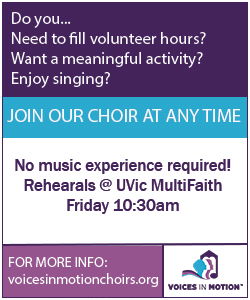The controversial on-campus debate that took place on Nov. 14, “Abortion: Human Right, or Human Rights Violation?”, reminded me of the day I joined the Occupy Boston Movement. I was in Boston three years ago for a conference and used my free time to show solidarity with people affected by the U.S. economic downturn. The protesters were fed up with growing inequality, youth unemployment, and the ongoing enrichment of the “One Percent”, so I marched with them along a pre-planned route through the Financial District. The night was cold and rainy, and some police officers were clearly perturbed about having to provide outdoor security during a fall storm.
Occupy Boston organizers were clear about how we should communicate our message: there were to be no physical altercations, no swearing, and we were to always keep walking and stay inside police lines. In other words, we were to deliver our message of social justice with civility. Even on the crucial topic of American inequality, Occupy Boston was not just a matter of winning or losing, but how we played the game.
The abortion debate played out very differently. Dr. Eike-Henner Kluge, esteemed UVic philosophy professor representing the pro-choice side, opened by reminding listeners to honour the 800-year-old university tradition of free speech and open debate. He instructed us to reserve our comments for the question period, while those motivated to interrupt the speakers should kindly leave the hall. Unfortunately for everyone present, the chorus of protesters at the back, some identifying as members of UVic’s Society for Reproductive Health, ignored Dr. Kluge’s request.
While abortion opponent Stephanie Gray spoke, they dominated the airspace with shouting and expletives. One placard read, “Fuck the YPY (pro-life group Youth Protesting Youth).” Nothing could deter them—not Dr. Kluge, who pleaded for civility, nor the presence of a full house wanting to resume the debate.
At one moment, a young woman from the audience took the microphone. With tears running down her face, she told of coming to Canada as a refugee, living through a conflict, and watching family murdered before her eyes. To the shouters she said, “You people don’t understand what I’ve gone through to be in this room. But you know what? I would still sit there and let whoever did that to me and my family speak because they’re human, too.”
The campus debate should never have descended to this point—a woman with a horrific past pleading for free speech and civility. The room went quiet, but even then the shouters shockingly resumed. Finally, after 40 minutes of unnecessary drama and ill-success by UVic Campus Security, the Saanich Police were called and the protesters filed out of the hall, to audience applause.
The university campus—and the lecture hall in particular—should never descend to the “out-shouting” and disrespect so shamelessly played out today in Canadian politics, American news networks, and Internet chat rooms. The lecture hall is a unique space where viewpoints are tabled, and debated, and where disagreements can play out with full recognition of every person’s dignity and right to speak. Incessant shouting elevates the words of a few above the hundreds willing to honour a long and marvellous history of academic protocol. Being right about something doesn’t give a person license to trample another’s right to free association and free speech. There is nothing romantic about this model of civil disobedience. The sad irony is that in the name of preventing censorship and exclusion, the protestors censored and excluded themselves.
The university has a special place in society because, more than any other institution, it provides the space for learned discussion about issues that might otherwise, and hopelessly, divide us beyond repair. An academic interaction should not be modelled on political-style winners and losers. Three years ago, I saw Occupy Boston organizers teach that how we play the game is inseparable from its outcome. What took place at our university’s abortion debate shows that some people need to hit the practice field.
Stephen Fielding is a PhD. candidate in History at the University of Victoria.






